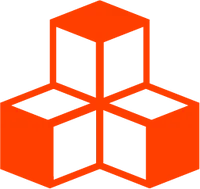Getting Started
Installation
To start using Threlte, you can either scaffold a new project using the CLI or install the packages manually in an existing project.
Scaffold a new Threlte project
The easiest way to get started with Threlte is to use the command npm create threlte to scaffold a
new project. This CLI will interactively guide you through creating a new SvelteKit project as well
as installing and configuring Threlte and its dependencies.
npm create threlte my-projectManually install Threlte in an existing project
Threlte consists of 6 packages which can be installed and used individually. @threlte/core and Three.js
itself are required for all projects while the other packages are optional.
@threlte/gltf does not need to be installed separately as it
can be used with npx, the resulting Threlte components however require @threlte/extras to be installed.
Choose the packages you want to use
Install the packages with npm, pnpm, yarn or any other package manager you prefer.
npm install three @threlte/core Configuration
Adapt vite.config.js
If you are using Threlte with SvelteKit, adapt your Vite configuration to prevent three from being externalized for SSR by vites externalization step
const config = {
// …
ssr: {
noExternal: ['three']
}
}See this comment for tips on how to reduce bundle size when working with bundlers like vite and three.js.
